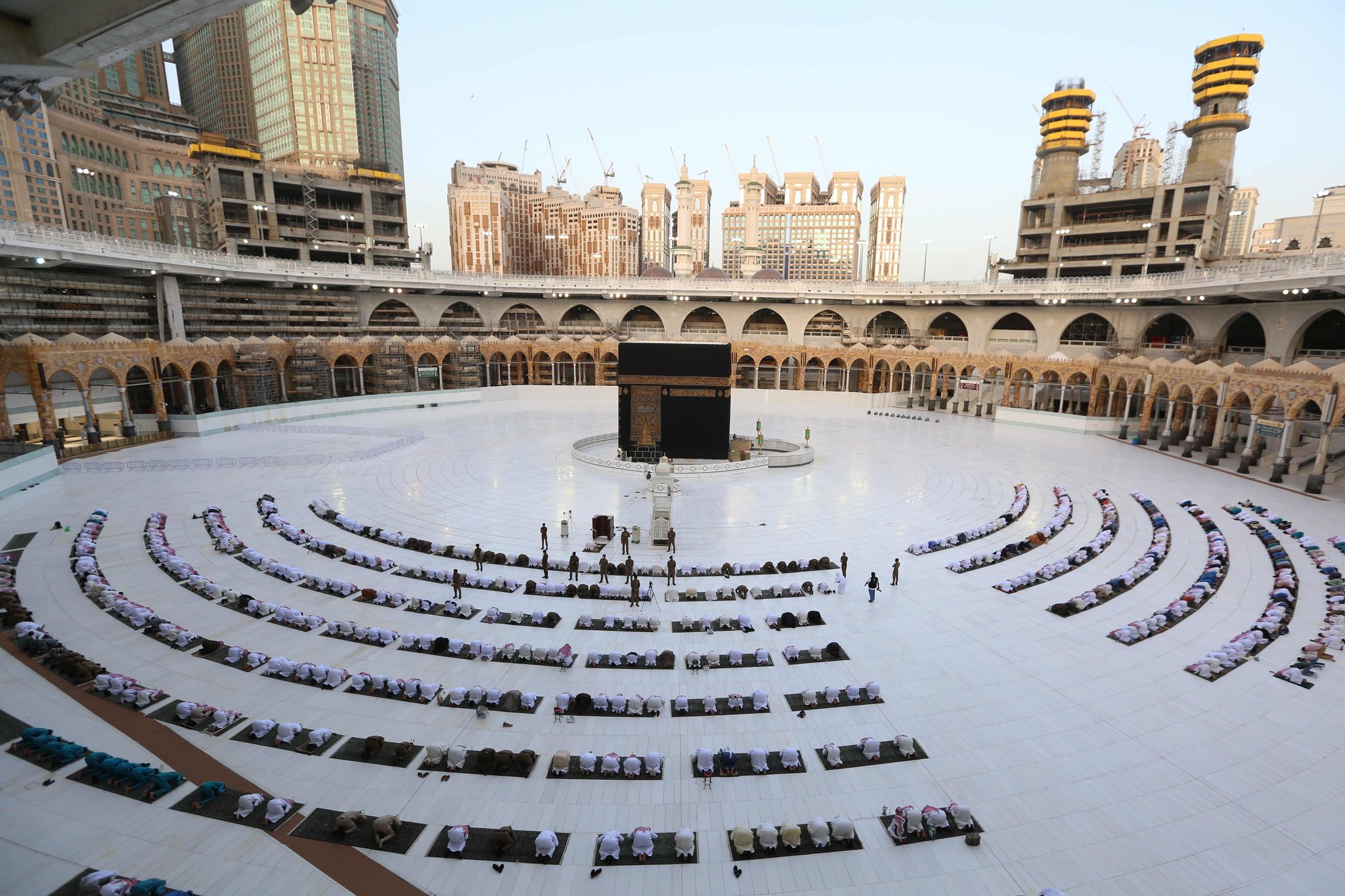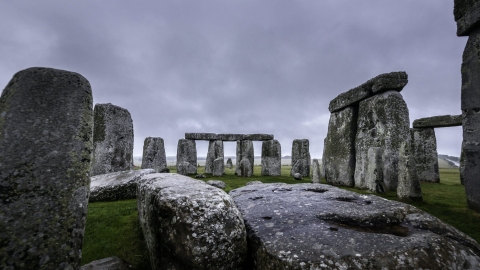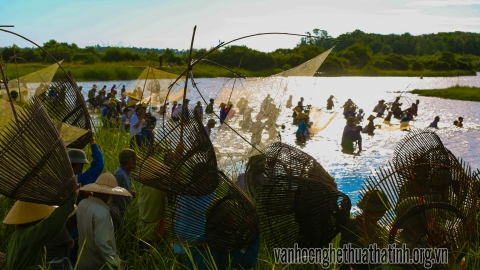The pilgrimage (hajj) is considered one of the five pillars of Islam, modeled after the journey undertaken by the Prophet Muhammad in 630 AD. It is also a religious obligation that Muslims must perform at least once in their lifetime, depending on their financial means and physical condition.
This year's pilgrimage to Mecca (Saudi Arabia), which began on July 28th and will last until August 2nd, is one of the obligations that Muslims must fulfill at least once in their lifetime. Last year's pilgrimage attracted more than 2.5 million people from around the world, who came to Mecca to pray, eat, and repent together.
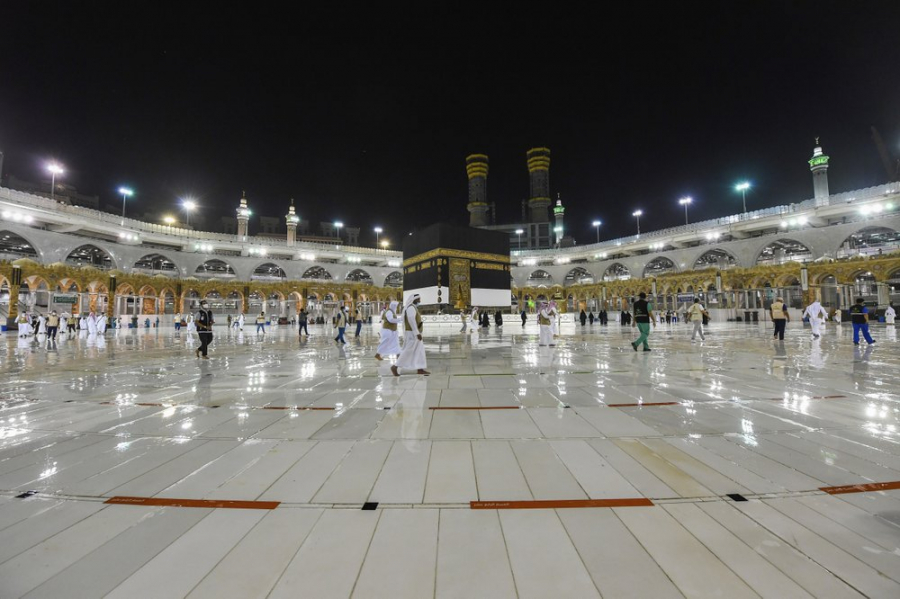
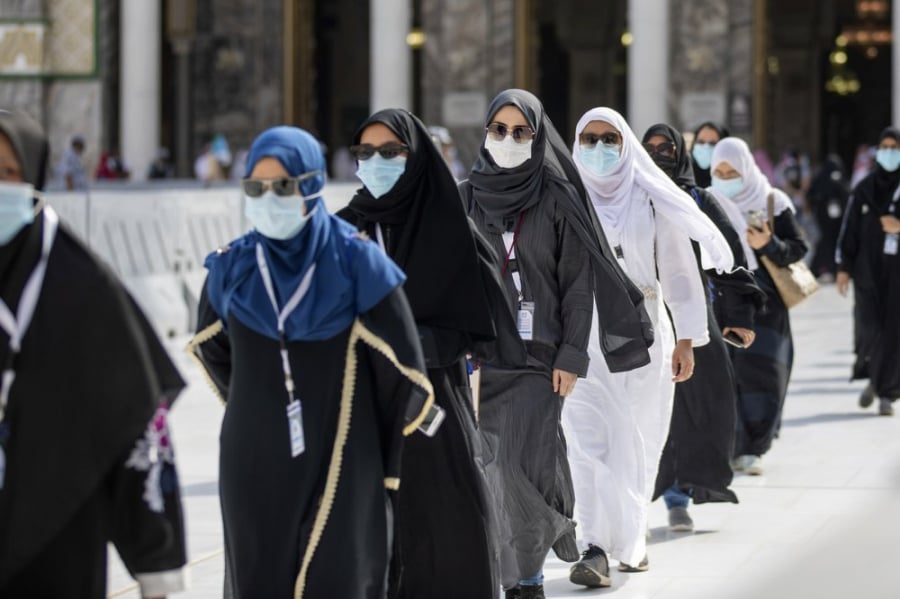
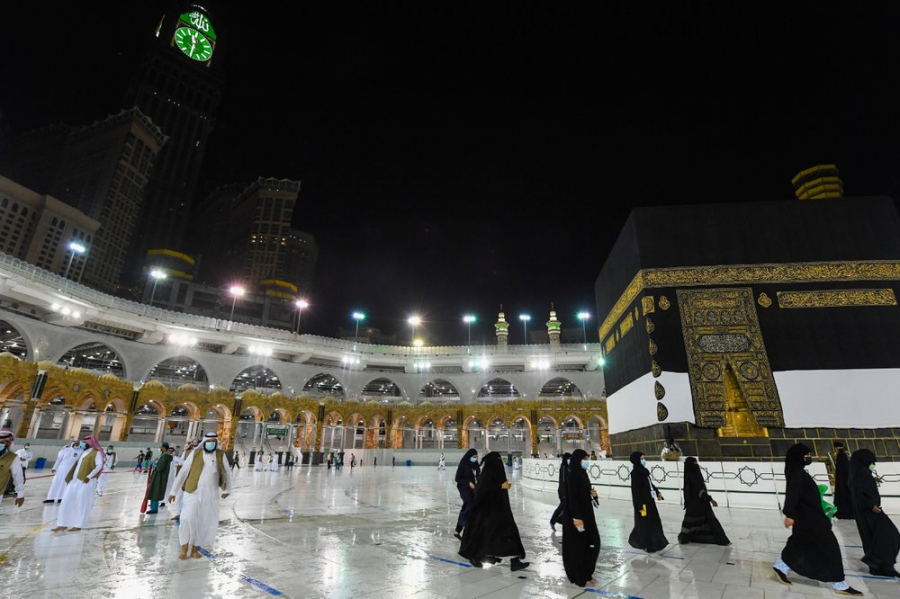
On July 29th, pilgrims began performing the first rituals of the hajj.
However, instead of the usual scenes of crowds of people from all walks of life jostling to pray in Mecca, with young people pushing wheelchairs for the elderly and carrying their children, this year only about 1,000 worshippers in Saudi Arabia participated in the ritual. The worshippers had to practice social distancing, standing far apart and moving in small groups of 20 to limit the spread of COVID-19. They ate canned food alone in their hotels and prayed away from others.
Although this experience is very different, it is still an opportunity for pilgrims to shed past sins, strengthen their faith, and fulfill one of the five pillars of Islam.
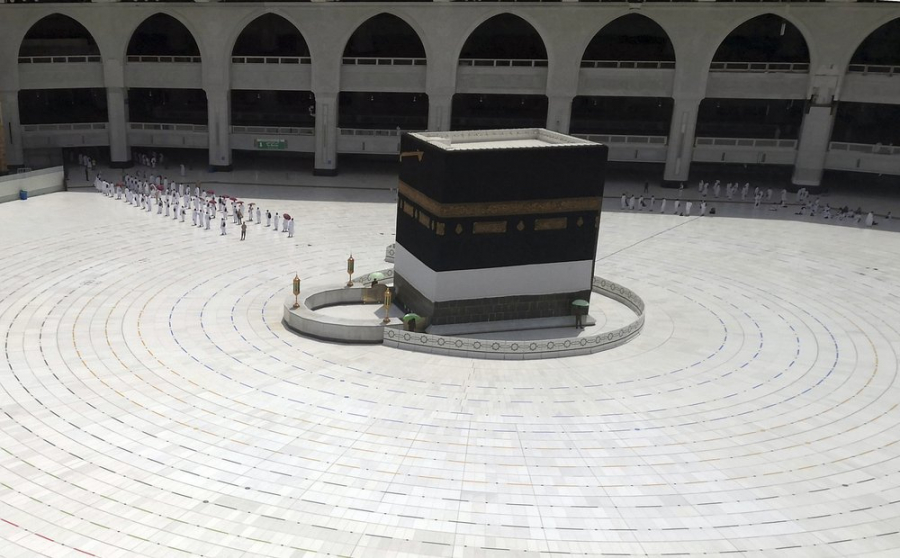
The Kaaba, a rectangular structure located in the center of the Grand Mosque, is wrapped in a gold-embroidered silk cloth around which Muslims from around the world will walk to pray during the first rite of the hajj.
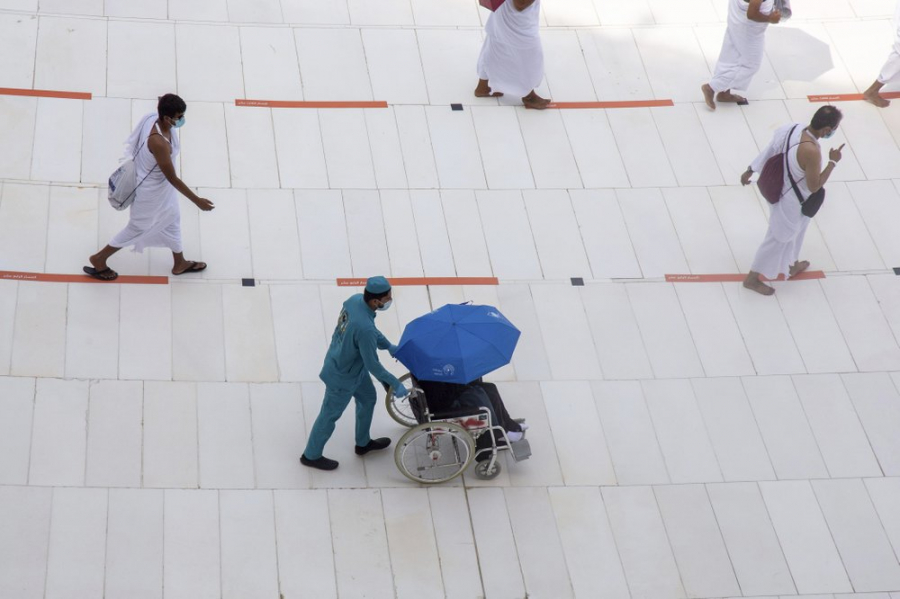
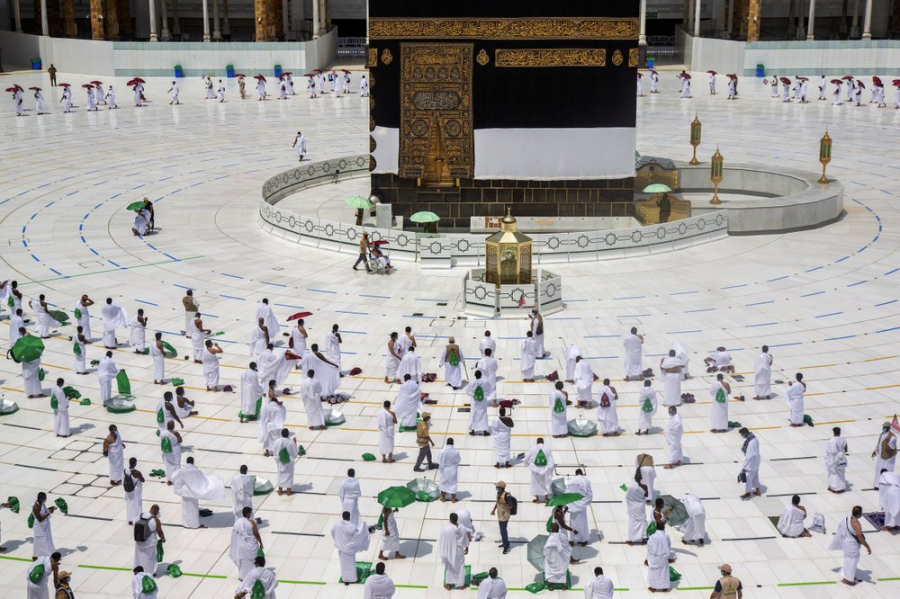
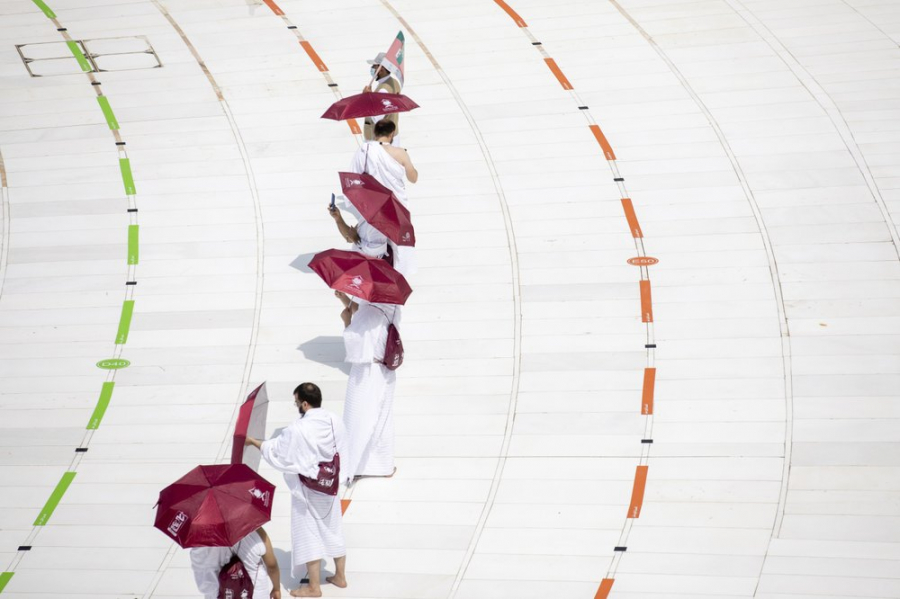
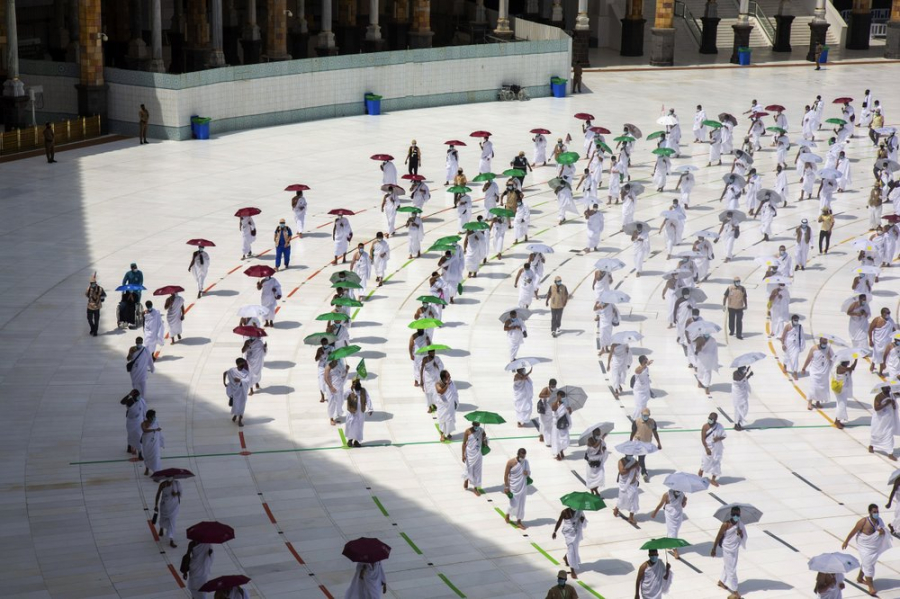
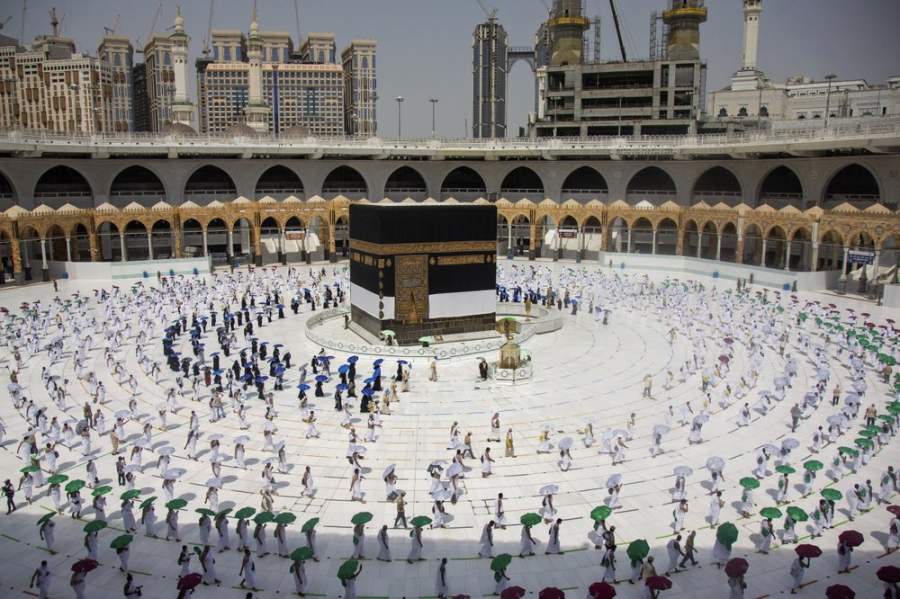
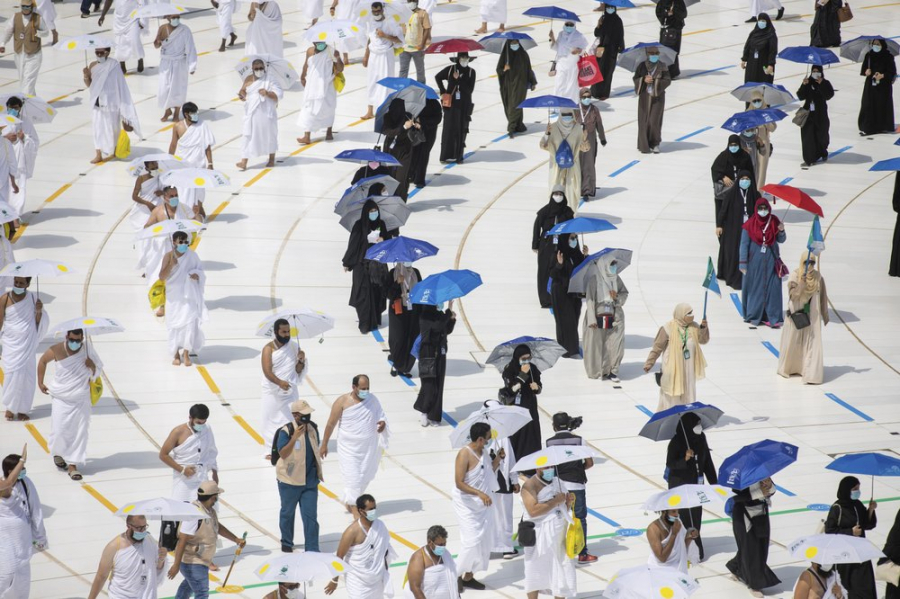
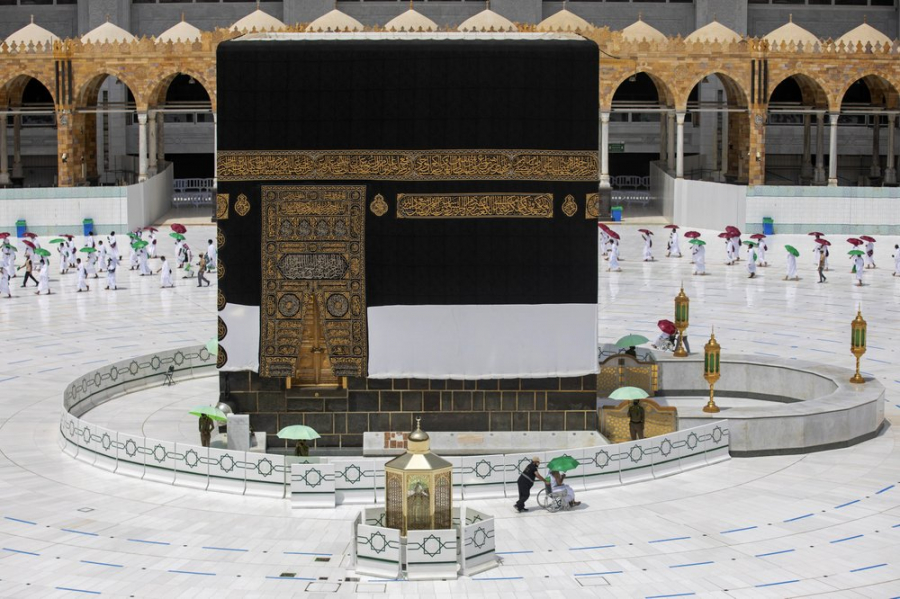
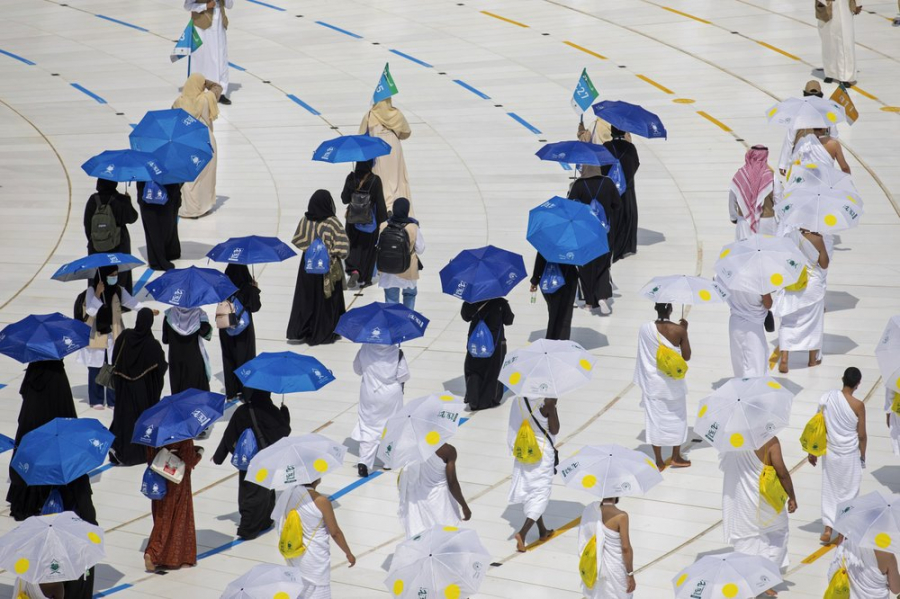
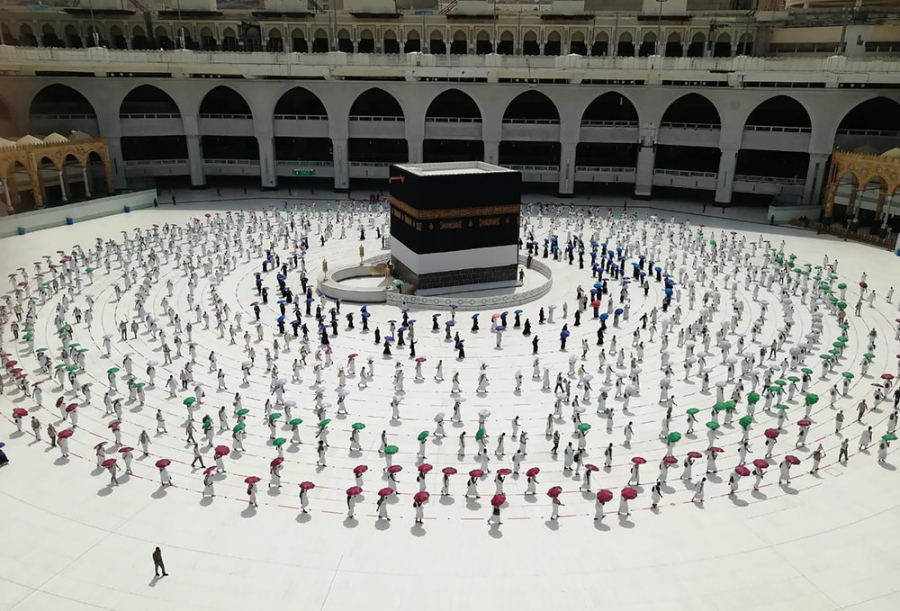
On July 29, hundreds of pilgrims surrounded the Kaaba but maintained safe social distancing.
For the first time in nearly a century, Saudi Arabian authorities have banned Muslims from abroad from entering the kingdom for the Hajj pilgrimage to prevent the spread of Covid-19. Only 1,000 residents of Saudi Arabia were selected to participate in this year's Hajj. Two-thirds of these are foreigners from 160 different nationalities, who are typically represented at the pilgrimage. One-third are Saudi Arabian security and medical personnel.
Muslim pilgrims selected to participate in this year's hajj must be between 20 and 50 years old, have no underlying health conditions or Covid-19 symptoms, and those who have never participated in a hajj before are given priority. All are tested for the coronavirus, wear tracking bracelets, and are required to quarantine at home or in hotels in Mecca before the hajj begins. They are also required to quarantine for an additional week after the pilgrimage concludes.
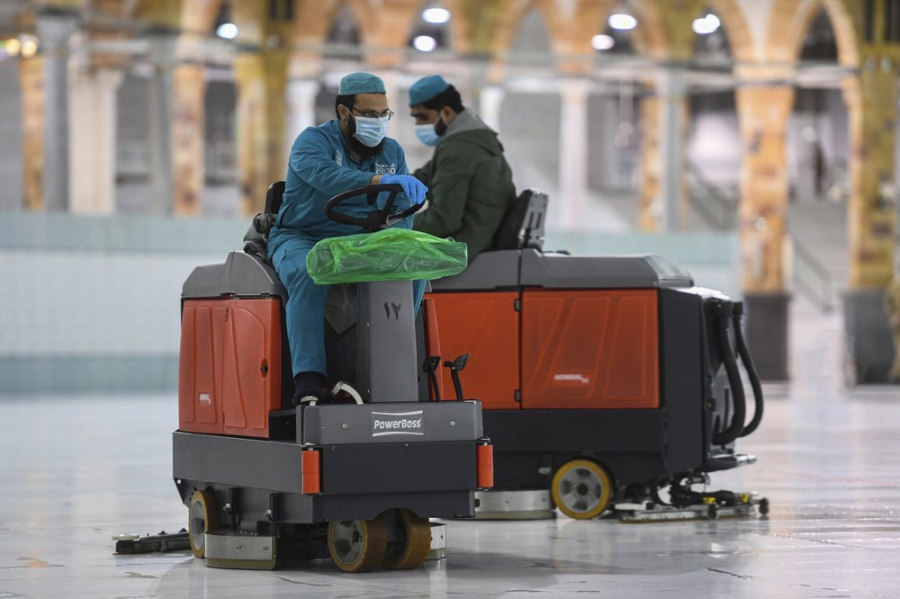
Sanitation workers disinfect the central area of the mosque in Mecca on July 27.
International media were not allowed to report from Mecca. Instead, Saudi Arabian authorities broadcast live footage from the Grand Mosque showing medical personnel disinfecting pilgrims' luggage and pilgrims maintaining a few meters apart as they circled the Black Stone Kaaba, a rectangular structure at the center of the Grand Mosque, wrapped in gold-embroidered silk that Muslims from around the world would walk around during the first ritual of the hajj. To limit the risk of infection, pilgrims were also not allowed to touch the Black Stone Kaaba. Numerous medical facilities, mobile clinics, and ambulances were also deployed to serve the pilgrims.
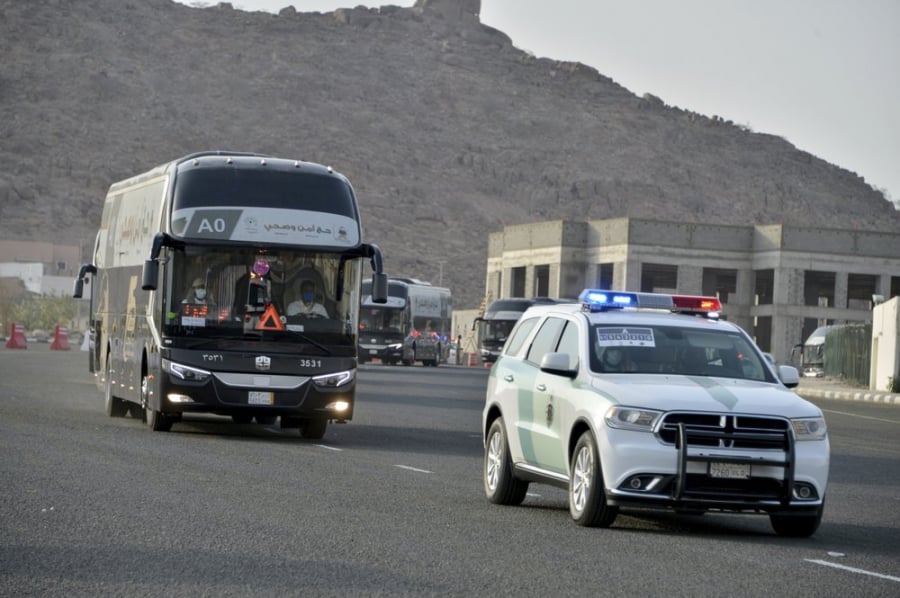
A police car escorts the pilgrims to the Grand Mosque.
Khalid bin Qarar Al-Harbi, Saudi Arabia's Director of Public Security, stated that there are currently no security concerns regarding the pilgrimage, and that the scaled-down event is aimed at protecting pilgrims from the risk of infection. Muslim pilgrims will be required to wear masks and maintain social distancing during religious ceremonies in Mecca and surrounding areas in western Saudi Arabia. Those selected to participate in the pilgrimage have also had their temperatures checked and are subject to quarantine monitoring upon beginning their journey to Mecca.
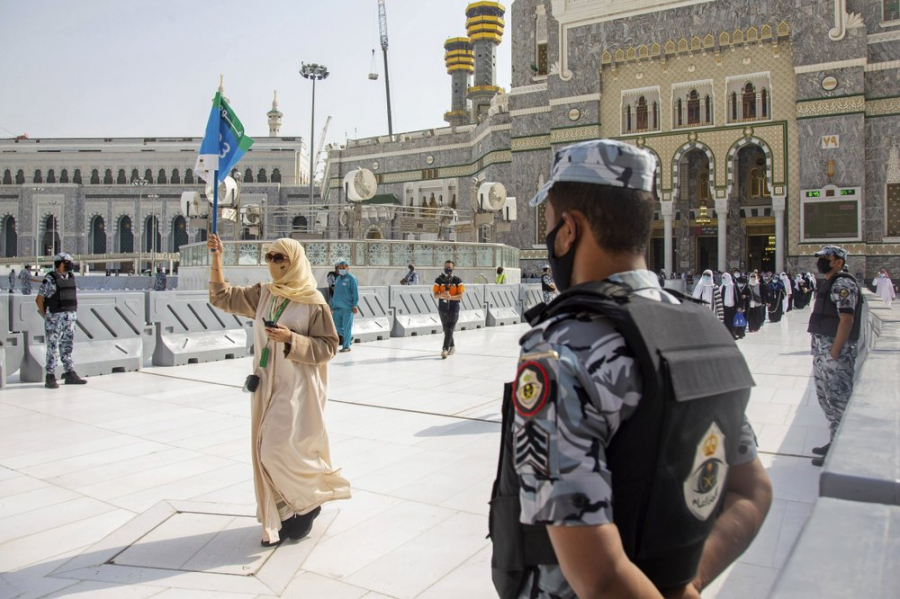
Security personnel are controlling the number of pilgrims participating in the pilgrimage at the Grand Mosque.
Pilgrims can only drink water from the Zamzam well in pre-packaged plastic bottles. The pebbles they usually collect along the pilgrimage routes to ward off evil spirits are sterilized and packaged.
Pilgrims are also given individual prayer mats and special clothing to wear during the hajj, which is treated with silver nanoparticle technology that Saudi Arabian authorities say will help kill bacteria and make the clothing water-resistant.
During the pilgrimage, women are not allowed to wear makeup or perfume, and they wear loose clothing and head coverings. Men wear white jumpsuits to emphasize the equality of all Muslims and to prevent wealthy pilgrims from dressing differently.
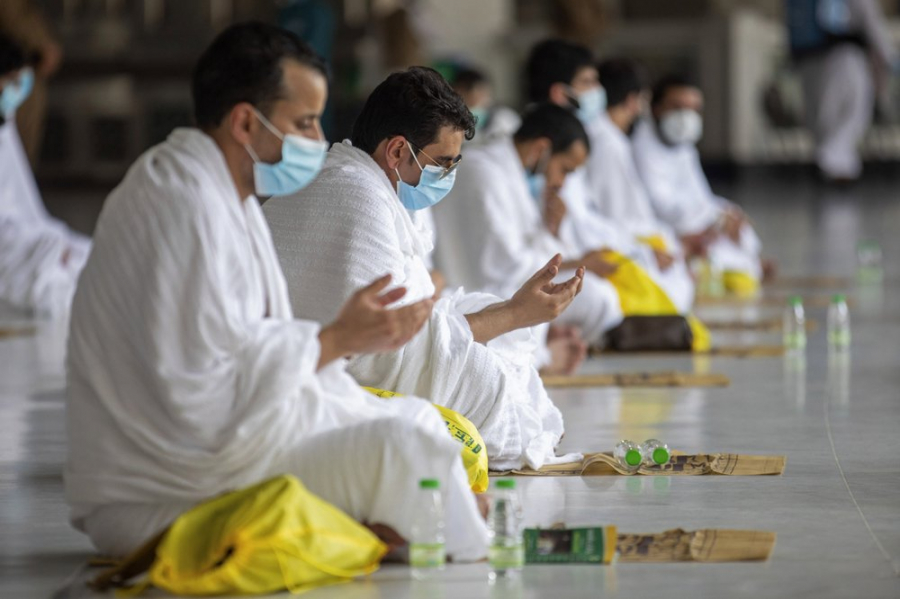
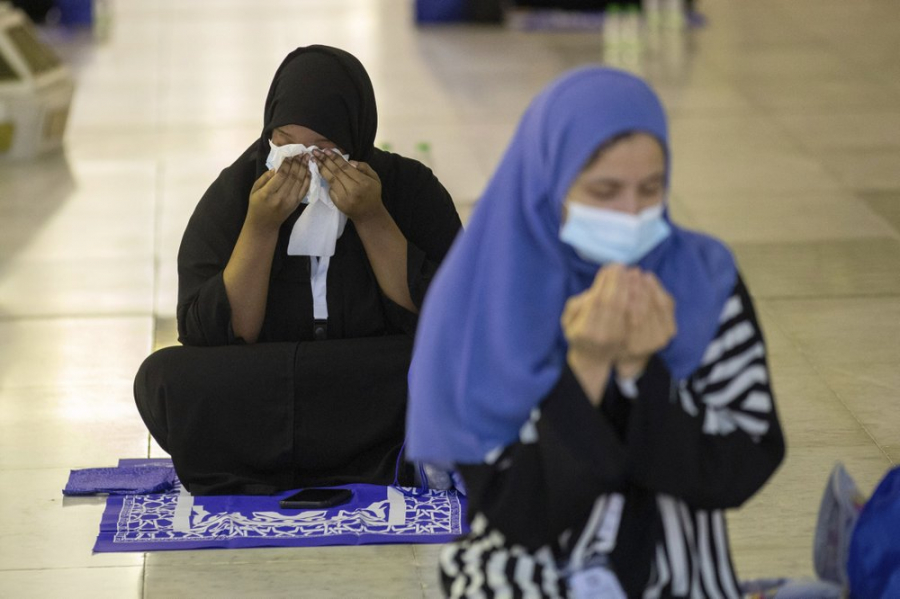
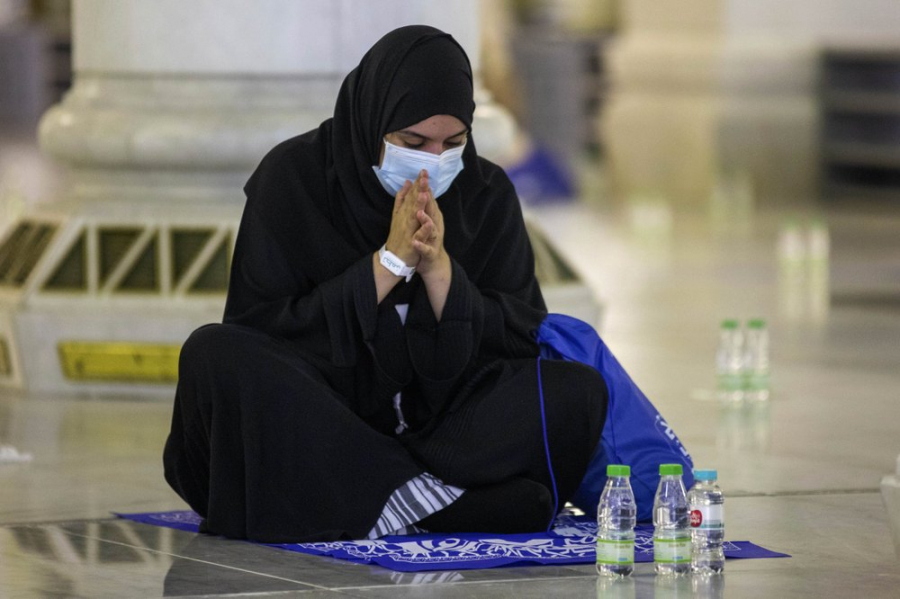
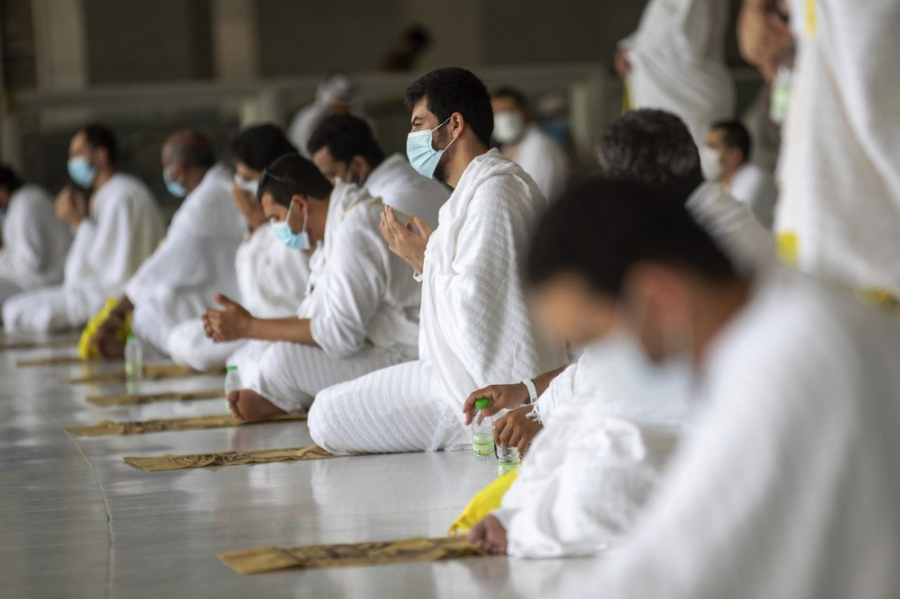
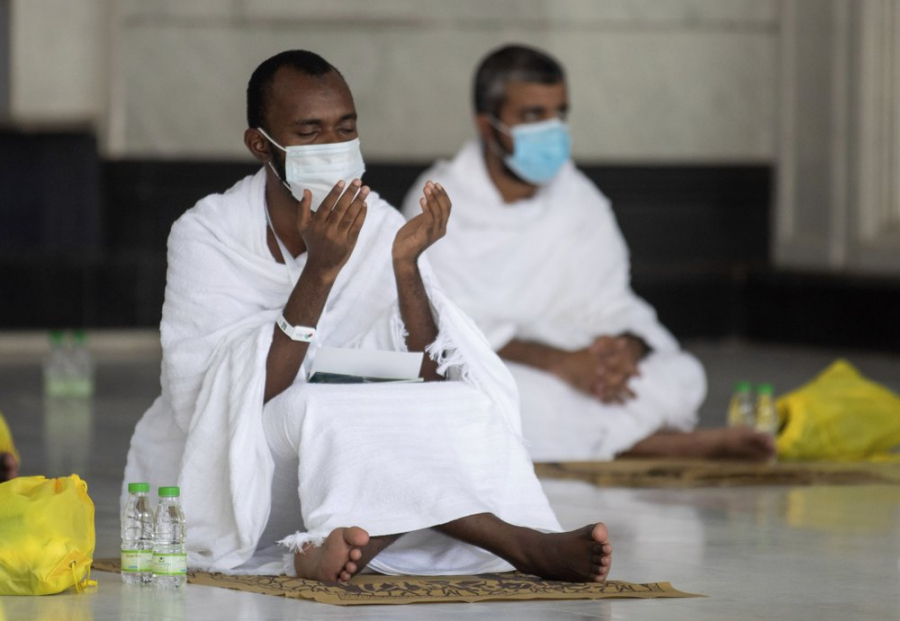
Worshippers prayed together but maintained safe social distancing.
Saudi Arabia is currently one of the countries most severely affected by the Covid-19 pandemic in the Middle East. As of the morning of July 30th (Vietnam time), Saudi Arabia had recorded 272,590 cases of Covid-19, including 2,816 deaths.

 VI
VI EN
EN




